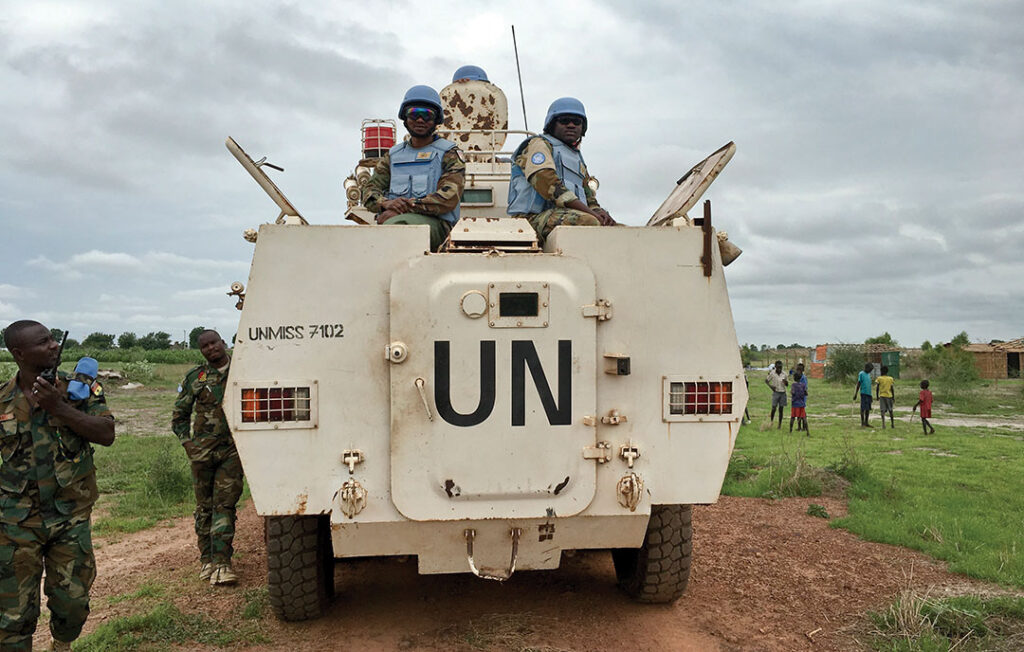ADF staff
A report by the Institute for Security Studies warns that withdrawing peacekeeping missions in Africa could create a significant security gap, leading to more violence and worsening humanitarian conditions.
The report, published in October 2023, noted that since the withdrawal of the United Nations Multidimensional Integrated Stabilization Mission in Mali began in July 2023, insecurity has surged. “Conflict between militants and the national army has reignited, and militant attacks have increased,” the report said. “Mali’s fragile security situation could regress to 2012 levels when jihadists tried to seize several key towns, including Timbuktu.”
For more than 60 years, peacekeeping missions have been deployed across Africa. The report noted that more than 13 U.N.-led missions and about 27 Africa-led peace support missions have spent billions of dollars annually and cost thousands of peacekeepers’ lives.
In recent years, the U.N. missions to Mali, the Democratic Republic of the Congo and Somalia have come under heavy criticism for being perceived as ineffective. In all three countries, the report said, calls for withdrawals have been driven by “local and international political pressures, unmet domestic expectations for improved security and donor funding fatigue.”
The report warns that Africa must prepare to fill the “inevitable security vacuum” when peacekeepers are no longer in place. It said that in the absence of U.N. peacekeepers, African nations must consider regional and continentwide approaches to security. Furthermore, there is a need for “frank and open discussions” between the U.N. and the African Union to fill the security gap. The report concluded that the dialogue between the two organizations “should go beyond financing peace missions to include revisiting the military-heavy approach to peacekeeping.”

